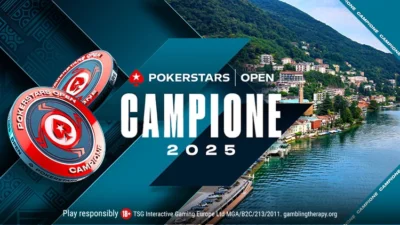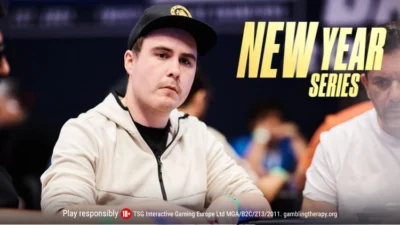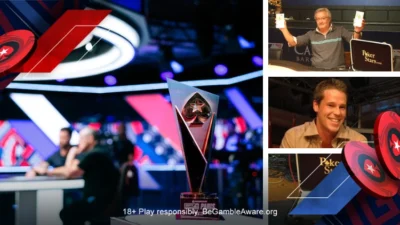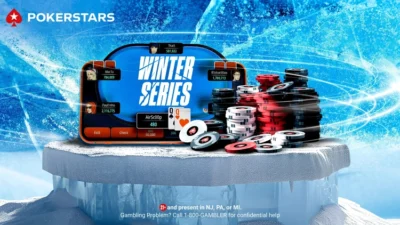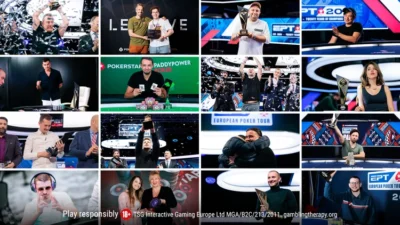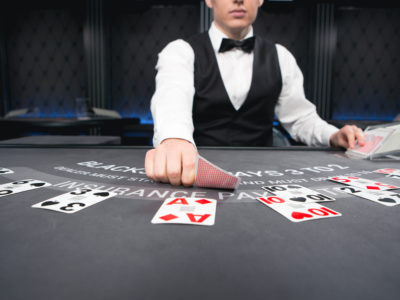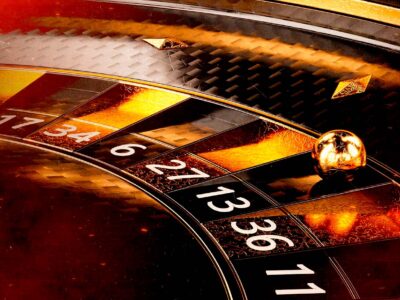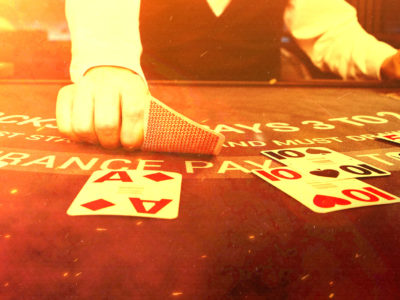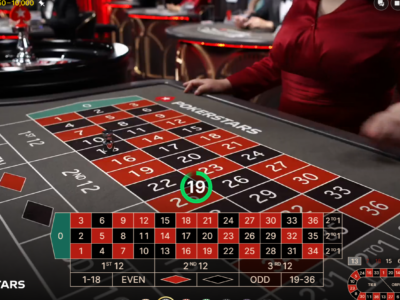For a long time, Professor Avi Rubin of Johns Hopkins University had thoughts of one day teaching a “poker class.”
“It’s something I had always wanted to do,” he says.
As a professor of computer science and also the Technical Director of the Johns Hopkins University Information Security Institute, Rubin has plenty of obligations to keep him busy throughout the academic year — too many, really, to make teaching a poker course feasible during the regular spring or fall semesters.
But he kept thinking about it. And talking about it, too.
A dedicated poker player himself, Rubin has traveled to Las Vegas to play a couple of World Series of Poker events every year since 2014, including once giving the Main Event a shot. He plays regularly in Maryland, takes occasional trips to Atlantic City, and also hosts a monthly home game. “I kind of built my house around the poker room,” he says.
Like many colleges and universities, Johns Hopkins has a winter term — what they call the “Intersession Program” — that allows students to take short in-between-semester courses each January. For Rubin, the Intersession created what felt like an opportunity. And like any good poker player, having spotted what appeared a good opening, he put his chips forward.
“I think my family got sick of me constantly talking about doing it someday,” he grins. “They were like, ‘you’re never going to do it, it’s so much work.'”
Motivated in part by the fact that his daughter is a junior this year and this January would be the only chance for her to take the course, Rubin made the committment and set about creating his poker class. Hundreds of hours (and Power Points) later, he’d done it — “An Introduction to the Theory and Practice of Poker” was on the Intersession schedule for January 2020.
“It was a lot of time and effort,” he says. “If I knew in advance how hard it was going to end up being, it would have been a hard sell. But I’m glad I did it.”
So were many, many others, it turned out. Rubin said he originally thought he’d be lucky if 25 students signed up, though the course was nonetheless optimistically capped at 100. A few minutes after online registration opened, Rubin decided to check to see how many were enrolled.
He found the cap had already been reached. In fact, there were 50 students on the waiting list! Far from a small “side event” on the list of course offerings, Rubin’s course was shaping up to be… well… kind of a “Colossus.”
Rubin arranged to move his class into a new, larger classroom, the enrollment cap was increased, and ultimately around 250 students signed up for the one-credit course that completed a couple of weeks ago — the largest Intercession course in the history of Johns Hopkins!
And from the looks of things, the course was a great success. The students learned a lot. And they had a blast. So did the teacher.
 The poker-playing professor, Avi Rubin
The poker-playing professor, Avi RubinWhen I heard about Professor Rubin’s class I was eager to talk to him and compare notes. Since 2011 I have regularly taught an American Studies course at the University of North Carolina at Charlotte called “Poker in American Film and Culture,” and over the years since have occasionally had the chance to chat with faculty from other colleges and universities from a variety of different departments who also teach “poker classes.”
My class covers the history of poker and its place in American culture. I have one big disclaimer I always deliver at the beginning of the course, namely, that I will not be teaching students how to win at poker. We do discuss how to play different variants and even get into a little strategy here and there. But I am careful not to allow anyone to build any expectations they might come out of my class with some poker skills they can take to the tables.
In this regard, Dr. Rubin’s class is the polar opposite. Its primary focus is poker strategy, and from looking over the syllabus and perusing a few of the video lectures, it’s obvious anyone who takes “An Introduction to the Theory and Practice of Poker” will pick up a lot of valuable information and knowledge to help win at poker going forward.
Rubin created a website for the course — hopkinspokercourse.com — where he has made available his course syllabus as well as lecture slides and videos.
If you visit the site and take a look around, you’ll see the course starts with the rules and basics before moving through a range of strategy topics, including pot odds and fundamentals, starting hand selection, preflop strategy, postflop strategy (on all three streets), cash game and tournament strategy, poker etiquette, and more. The students also watched two films — All In: The Poker Movie and Rounders.
The class went very well, although Rubin did discover early on he had more material prepared than he would be able to cover. “After two days I had been through what I thought I would get through the first day, and had to start making some adjustments,” he explains.
Again, like a good poker player, Rubin sized up the situation — his “read” of the class — and was able to adapt.
Along the way Maryland native and 2005 WSOP Main Event runner-up Steve Dannenmann stopped by during one class meeting to give a guest lecture.
“He was very entertaining,” says Rubin. “I had lunch with him before he came to the class and he told me he had taken these public speaking seminars where they teach you how to be an engaging speaker, and he sure was.”

Dannenmann shared the tale of his storybook Main Event run in ’05, and how the second volume of Harrington on Hold’em had just come out before he left for Vegas. He took a copy with him, he explained, and was able read it by the pool at his hotel for some pointers.
“But he said when he got to the chapter on heads-up, he thought, ‘well, I’m not going to need that!'” laughs Rubin. (Dannenmann’s presentation is available to watch online, too.)
In order to give the students a chance to apply what they were learning, Rubin required them to play “cash games” online — for play money, of course — and in fact had them play PokerStars Home Games to do so.
“I was going to have a tournament at my home at the end, too,” he explains, though with such a large enrollment knew he couldn’t host everyone. So he had them play two satellites online, from which 44 students won seats in the class-ending event. About a dozen others played as well, including the three course assistants, members of Rubin’s family, and Rubin.
There were a few “wild card” entries, too. Rubin has an expertise in applied cryptography, and so it isn’t surprising that he’s a fan of riddles. So he gave his class a poker riddle, with the prize for the first student to answer it correctly being entry into the end-of-class tournament.
As it happened, the student who did so knocked Rubin out of the event to win a “professor bounty.” (That’s Rubin up top after getting his queens cracked by nine-eight.) Rubin also supplied gift cards and trophies for prizes, and a memorable time was had by all.

I asked Rubin what he thought his students ultimately took away from the course.
“I think it depends on what they came in with,” he said, an observation that resonates with what most teachers experience, regardless of the subject.
“Some students had never played poker before, including the one who ended up winning the tournament. He went from not knowing the rules to being a pretty decent player, I think, in just two weeks,” says Rubin.
“Every day I started class by critiquing how I thought they had played in the online game the night before, because I went in and played a lot with them,” he explains. “I think students who were already regular players learned a lot of strategy and a lot of the math in terms of pot odds, odds against hitting hands, and how to calculate short cuts and heuristics for making decisions quickly at the table. They also learned how to do work away from the table after a hand when you have more time to analyze your play and to develop some instincts and intuition.”
“But I think there was something for everyone. The most technical lectures were a bit complicated… but I think everyone had a chance to get something out of the course at some point.”
He says he’ll probably continue to offer the course going forward, probably every other year during the Intercession. I was very glad to hear that, given how well received the class was — and how much work Rubin put into it.
Of course, as Professor Rubin will tell you, having put all that work into it, he got a lot out of it, too.

View Other Blogs





